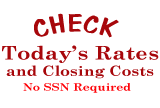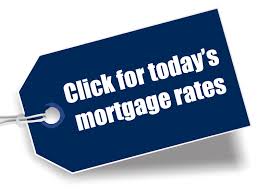Minneapolis, MN: Tips to getting a better mortgage loan are all over the internet, and everyone seems to have an opinion. When buying a home, almost everyone is going to need to get a mortgage loan. So knowing the tips of where you get that loan can effect service, programs, rate, cost, and more. Here are a few tips I suggest understanding:
So where to get a mortgage?
Banks, brokers, credit unions, and mortgage companies all offer loans in MN. Most offer the exact same loan programs, but not everyone offers everything. For example, it is fairly common for small banks and credit unions not to offer FHA loans or VA loans.
 Historically many people start with what I call their place of comfort. That is almost always whatever institution has their checking account. There really isn’t anything special here, but many people call it “their bank”, and wrongly believe because you have an account there already, you’ll get a better deal. Sorry, but that simply isn’t true.
Historically many people start with what I call their place of comfort. That is almost always whatever institution has their checking account. There really isn’t anything special here, but many people call it “their bank”, and wrongly believe because you have an account there already, you’ll get a better deal. Sorry, but that simply isn’t true.
Since the age of the internet, a web search for a mortgage company is another popular starting point. You’ll find a wide range of banks, brokers, credit unions, and local mortgage companies. There is nothing wrong with searching the internet for a mortgage company, except you need to understand that some out-state lender or the big internet companies names you see on TV CAN NOT offer you anything better than the local lender down the street.
Finally, about half of all people when buying a home simply use the mortgage lender the Real Estate Agents suggests. This is where I believe so many home buyers make a fatal, and expensive error.
Beware of Realtor In House or Preferred Lenders
When your Real Estate Agent suggest a lender, there are two types.
In House or Preferred Lender: Generally these companies are either owned by the real estate company, or have some kind of official partnership. Many times they have similar names. XYZ Real Estate sending you to XYZ Mortgage, but not always.
The Real Estate Agents work very hard to drive you to the in-house financing for a simple reason. They make money doing so. No matter what they say about convenience or anything else, it is all about making more money for their company. As you can imagine in this situation, you are generally NOT going to get the best deals in the market. Furthermore, just because they are the Real Estate Companies preferred lender, doesn’t make them good.
Outside Referral Partner: Generally speaking, these referrals companies do not have any sort of official relationship with the Real Estate company the agent works for. The Realtor is referring you to this Loan Officer simply because they have proven to have the knowledge, expertise, and the programs the clients need and want. The Loan Officer has proven themselves to be a great referral partner. The Real Estate Agent and the Real Estate Agents Company are making nothing extra when you select this lender. The agent and their company has no financial gain. Their only interest is based in you getting the best possible deal for you (not their company) and having someone they trust on your side.
Another tip? The worst referral partners… Builders… But I’ll save that for another article.
Choosing a Loan Officer
The first big thing to understand is about the Loan Officer you choose. You want your largest financial transaction handled by an experienced professional. So look for someone with well documented industry experience. I suggest at least 10-years at a minimum.
Next, realize that Loan Officers at depository lenders (banks and credit unions), and mortgage companies owned by a bank or credit union, are NOT required to have a license, are NOT required to have any schooling, and DO NOT need to pass any state or federal testing.
Loan Officers at non-depository lenders (brokers and direct mortgage companies) ARE REQUIRED to have schooling, continuing education each year, and pass stringent state and federal testing requirements.
I’m not saying any one individual Loan Officer is better or worse, but face it. I would prefer a licensed person versus an unlicensed person. So how do you know if your Loan Officer is licensed? You don’t unless you ask or check through the national loan officer database. All Loan Officers must have a tracking number known as an NMLS number. Don’t be fooled, an NMLS number is NOT a license number.
Giving the two choice of referral partners, and knowing what you’ve just read… Which one would you choose?

 The biggest hurdle for many first time home buyers is the lack of down payment money. With the down payment assistance programs from the Minnesota Housing Finance Agency – you can buy a new home today, and be enjoying it next month!
The biggest hurdle for many first time home buyers is the lack of down payment money. With the down payment assistance programs from the Minnesota Housing Finance Agency – you can buy a new home today, and be enjoying it next month!
 5. Paying bad debt fixes your credit. Paying collections and charge off’s is always better, but paying them doesn’t make them go away. They still occurred, so they can still hurt. Standard late payments remain for up to 7-years. Bankruptcies and foreclosures remain for at least 10-years.
5. Paying bad debt fixes your credit. Paying collections and charge off’s is always better, but paying them doesn’t make them go away. They still occurred, so they can still hurt. Standard late payments remain for up to 7-years. Bankruptcies and foreclosures remain for at least 10-years. Mortgage interest rates are likely to move up and down many times during this lockable period, which is usually 60-days or less. Rarely do we see rates make big moves, rather just small moves of 1/8th to 1/4 percent higher or lower during that period. A typical example week may be something like 4.625% on Monday, 4.75% on Tuesday, 4.625% on Wednesday, 4.50% of Thursday, and 4.625% again on Friday.
Mortgage interest rates are likely to move up and down many times during this lockable period, which is usually 60-days or less. Rarely do we see rates make big moves, rather just small moves of 1/8th to 1/4 percent higher or lower during that period. A typical example week may be something like 4.625% on Monday, 4.75% on Tuesday, 4.625% on Wednesday, 4.50% of Thursday, and 4.625% again on Friday.







